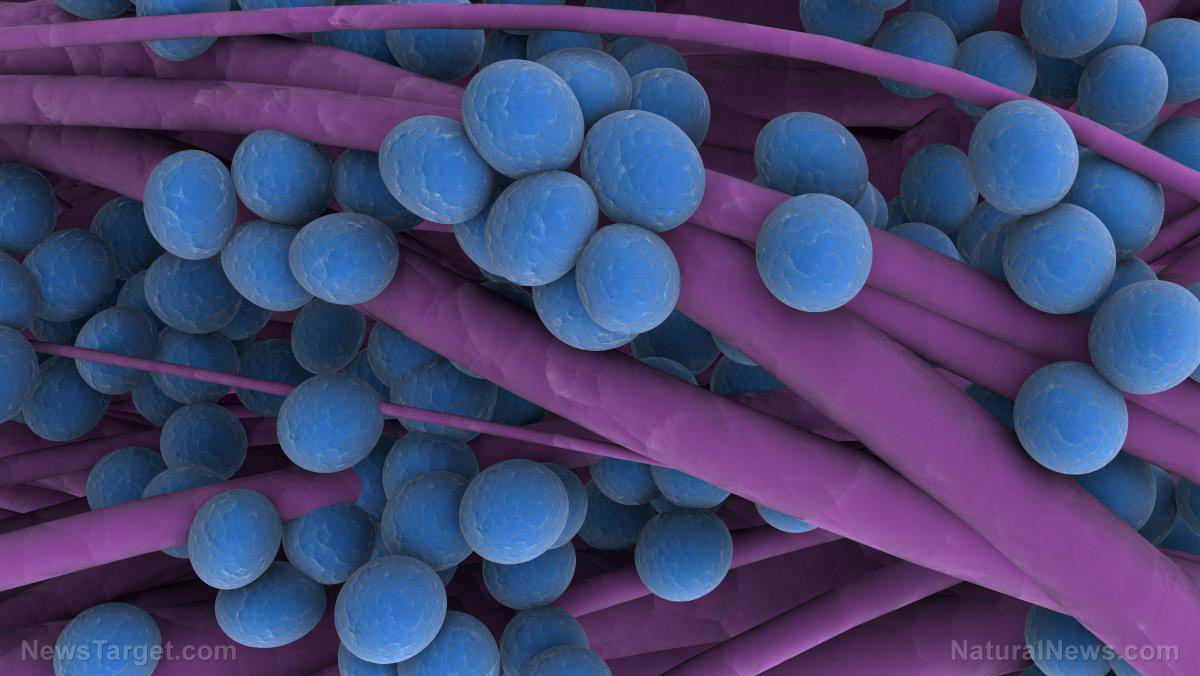Study: Berberine, a natural anti-staphylococcal agent, can be used to treat prosthetic joint infections
10/08/2021 / By Franz Walker

Staphylococcus aureus is one of the primary pathogens responsible for prosthetic joint infection (PJI). This is a huge problem as certain strains of S. aureus are resistant to conventional antibacterial treatments. With this in mind, a group of researchers from China investigated whether berberine can be used as a treatment for PJI-related S. aureus infection.
Joint replacement is a life-enhancing procedure performed on millions of people worldwide each year. A successful joint replacement improves a patient’s quality of life by relieving pain and restoring function as well as independence.
But each joint replacement comes with the risk of PJI, which is usually caused by S. aureus. This bacterium is part of the human skin microbiota. Studies show that about 36 percent of all cases of PJI are caused by S. aureus infection.
But what is more troubling is the fact that, over the past decades, antibacterial-resistant strains of S. aureus have emerged, such as the methicillin-resistant S. aureus (MRSA). This pathogen, in particular, can be found in hospitals and healthcare settings, where sterilization measures kill off less resistant strains. (Related: Excessive antibiotic use is actually making staph infections stronger.)
To find an alternative treatment for S. aureus-related PJI, researchers from the Shanghai Jiao Tong University Affiliated Sixth People’s Hospital tested berberine in vitro to determine whether it can be used to fight S. aureus. The results of their study were published in the journal BMC Complementary and Alternative Medicine.

Testing berberine against PJI-related S. aureus
Berberine is an isoquinoline alkaloid that can be extracted from various plants, such as the traditional Chinese medicinal herb, huang lian (Coptis chinensis). This plant has been used for decades as an over-the-counter medicine to treat diarrhea and bowel disorders.
Studies have found that berberine possesses many beneficial properties. In fact, it can be used as an anti-tumor, antiviral, antifungal and antibacterial agent. Many studies have also tested berberine’s antimicrobial effects against S. aureus, particularly against MRSA.
To test whether berberine would work against PJI-related S. aureus, the researchers collected 18 known S. aureus strains. They used polymerase chain reaction (PCR) to sequence the bacteria’s genes and determine their multi-locus sequence type (MLST).
The researchers also conducted biofilm assay to assess bacterial attachment and biofilm formation. As part of this, they added berberine to bacterial cultures grown in tryptic soy broth (TSB). They then stained the resulting biofilms with crystal violet for 15 minutes, before rinsing them with phosphate buffered saline and measuring their absorbance at 600 nm.
In addition, the researchers conducted a growth kinetics test, which involved adding 100-microliter suspensions of the bacterial cultures to 100 microliters of serially diluted berberine. They then evaluated bacterial growth by measuring the optical density of the cultures using a microplate reader.
Berberine demonstrates bactericidal effects against PJI-related S. aureus
Following their tests, the researchers found that berberine’s minimum inhibitory concentration (MIC) values against PJI-related S. aureus strains varied greatly – from 32 to 512 micrograms per milliliter (mcg/mL) – among different MLST subtypes.
Within two hours of incubation, the researchers found no significant growth in all tested S. aureus strains. After 6 hours, all the strains showed a decrease in bacterial colonies. After 12 hours, the cultures showed a dramatic reduction in the number of bacteria.
After 24 hours, however, results started to vary. The researchers reported that for cultures where berberine’s MIC was below 512 mcg/mL, S. aureus started to display substantial growth, indicating a resistance to berberine.
Based on these results, the researchers concluded that berberine has bactericidal effects against PJI-related strains of S. aureus. However, its antibacterial activities are impacted by the strains’ MLST subtype, with some strains actually showing resistance to berberine. Nonetheless, the study provides evidence that berberine can be used to treat S. aureus-induced PJI.
For more studies on natural treatments for S. aureus infections, follow NaturalAntibiotics.news.
Sources include:
Tagged Under: alternative medicine, antibacterial, berberine, Chinese medicine, infections, natural antibiotics, natural cures, natural medicine, phytonutrients, prosthetic joint infection, remedies, research, Staph, Staphylococcus aureus





















